
AlphaLISA Human Total PD1 Detection Kit, 500 Assay Points
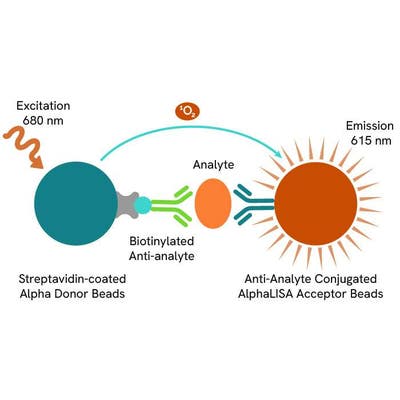

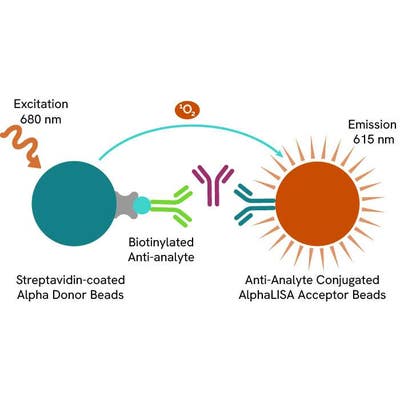 View All
View All
AlphaLISA Human Total PD1 Detection Kit, 500 Assay Points
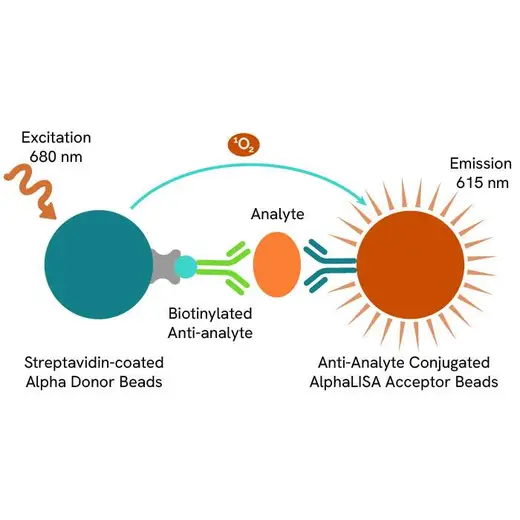

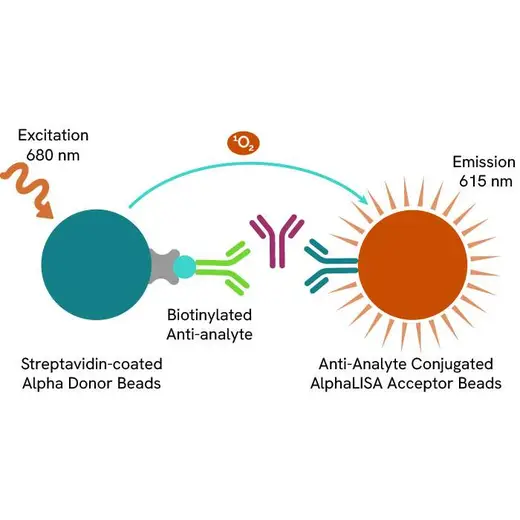




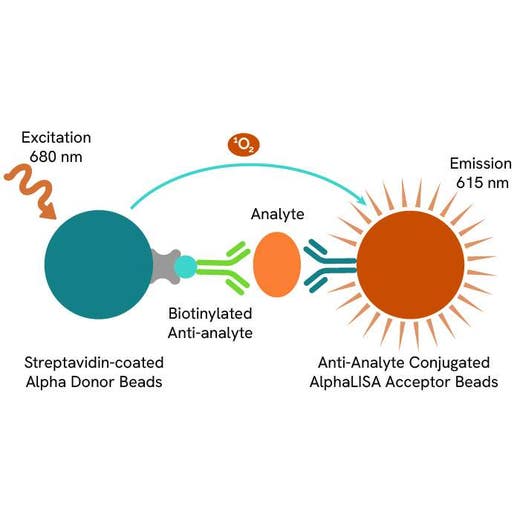

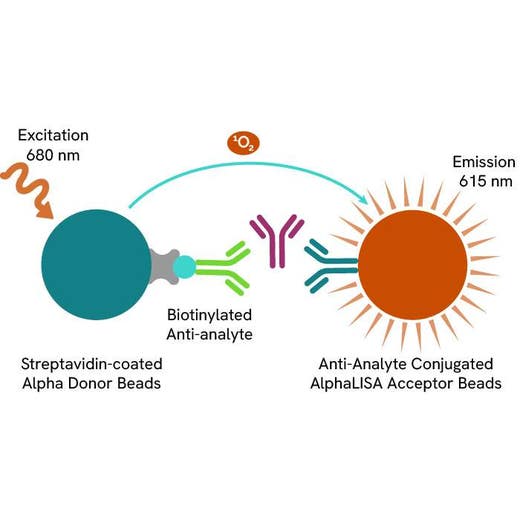




The AlphaLISA™ Human PD-1 Detection Kit is designed for detection and quantitation of human Programmed Cell Death Protein 1 (PD-1) in cell culture media or serum using a homogeneous (no-wash steps, no separation steps) assay.
| Feature | Specification |
|---|---|
| Application | Protein Quantification |
| Dynamic Range | 9 - 100,000 pg/mL |
| Limit of Detection | 9 pg/mL |
| Limit of Quantification | 37 pg/mL |
| Sample Volume | 5 µL |
The AlphaLISA™ Human PD-1 Detection Kit is designed for detection and quantitation of human Programmed Cell Death Protein 1 (PD-1) in cell culture media or serum using a homogeneous (no-wash steps, no separation steps) assay.







AlphaLISA Human Total PD1 Detection Kit, 500 Assay Points







AlphaLISA Human Total PD1 Detection Kit, 500 Assay Points







Product information
Overview
Formats:
- Our HV (100 assay point) kits allow you to run 100 wells in 96-well format, using a 100 µL reaction volume (10 µL of sample).
- Our 500 assay point kit allows you to run 500 wells in 96-well or 384-well format, using a 50 µL reaction volume (5 µL of sample).
- Our 5,000 assay point kit allows you to run 5,000 wells in 96-well or 384-well format, using a 50 µL reaction volume (5 µL of sample).
Features:
- No-wash steps, no separation steps
- ELISA alternative technology
- Sensitive detection
- Broad sample compatibility
- Small sample volume
- Results in less than 3 hours
- Half the time of an ELISA assay
Programmed cell death protein 1 (PD-1), also known as cluster of differentiation 279 (CD279), belongs to immunoglobulin superfamily and is a transmembrane receptor protein. PD-1 is present on T –cells or B-cells and binds to ligands, such as PD-L1 and PD-L2, to down regulate the immune system by modulating many other cytokines and cytokine receptors. Anti PD-1 antibody drugs been shown to enhance the immune systems of several types of cancer patients.
AlphaLISA technology allows the detection of molecules of interest in a no-wash, highly sensitive, quantitative assay. In an AlphaLISA assay, a biotinylated anti-analyte antibody binds to the Streptavidin-coated Donor beads while another anti-analyte antibody is conjugated to AlphaLISA Acceptor beads. In the presence of the analyte, the beads come into close proximity. The excitation of the Donor beads causes the release of singlet oxygen molecules that triggers a cascade of energy transfer in the Acceptor beads, resulting in a sharp peak of light emission at 615 nm.
Specifications
| Application |
Protein Quantification
|
|---|---|
| Automation Compatible |
Yes
|
| Brand |
AlphaLISA
|
| Detection Modality |
Alpha
|
| Dynamic Range |
9 - 100,000 pg/mL
|
| Limit of Detection |
9 pg/mL
|
| Limit of Quantification |
37 pg/mL
|
| Product Group |
Kit
|
| Sample Volume |
5 µL
|
| Shipping Conditions |
Shipped in Blue Ice
|
| Target |
PD-1
|
| Target Class |
Biomarkers
|
| Target Species |
Human
|
| Technology |
Alpha
|
| Therapeutic Area |
Oncology
|
| Unit Size |
500 Assay Points
|
Image gallery






AlphaLISA Human Total PD1 Detection Kit, 500 Assay Points






AlphaLISA Human Total PD1 Detection Kit, 500 Assay Points






Video gallery

AlphaLISA Human Total PD1 Detection Kit, 500 Assay Points

AlphaLISA Human Total PD1 Detection Kit, 500 Assay Points

Resources
Are you looking for resources, click on the resource type to explore further.
Membrane proteins, which are key in cellular signaling and often serve as disease biomarkers, are a significant focus in research...
Chimeric antigen receptor (CAR) T-cell therapy has transformed the field of immuno-oncology providing a novel approach to treating...
Loading...


How can we help you?
We are here to answer your questions.






























